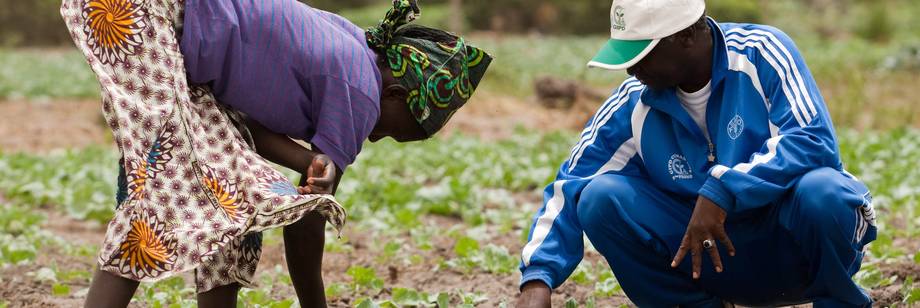Carbon balance appraisal and economic analysis of the Nigerian Vision 2020
The World Bank is supporting emerging countries in developing and assessing low carbon growth strategies. The Federal Government of Nigeria and the World Bank have therefore agreed to carry out a Climate Change Assessment (CCA), within the framework of the Bank’s Country Partnership Strategy (CPS) for Nigeria (2010-2013). The sectors concerned by this broad study are agriculture and land use, oil and gas, power and transport. FAO has been asked to do the assessment for the agriculture sector, using the EX-ACT tool.
The Federal Government of Nigeria has launched with the Nigeria Vision 2020 (NV 2020) a long term development and growth strategy that aims at integrating the country into the world’s 20 leading economies by 2020. Agriculture has been identified as a major driver of growth in the Nigerian economy and has an essential role in achieving Vision 2020 in Nigeria. The agriculture sector shall be a sector driven by technological innovation that is profitable, sustainable and that meets the socio-economic aspirations of the Nigerians.
The NV 2020 policy has been assessed with the EX-ACT tool in order to analyze the carbon balance of all the activities planned within this policy. The appraisal concerns 91 million ha.
Two main scenarios have been appraised:
- A reference scenario: it corresponds to the Nigeria Vision 2020 as developed by the Nigerian government, with a very ambitious growth rate of agricultural productivity, around 8% per year from 2010 to 2020
- A Low Carbon scenario: this Low Carbon (LC) scenario integrates a few possible mitigation options adapted to the Nigerian context
The main differences between the reference and the low carbon scenarios are i) decreases in the area subject to crop expansion, and ii) yield increase based on the implementation of SLM practices. The new LC scenario would reflect a sustainable intensification of the whole agricultural sector.
Calculating the difference between emissions in the reference scenario and emissions in the low carbon scenario leads to the estimation of the total mitigation potential of the Nigerian AFOLU sector (Agriculture, Forestry, Land Use).
An economic analysis, using Marginal Abatement Cost Curves (MACC) has been carried out, in order to identify the most cost-effective mitigation practice. The results and the methodology are presented in the linked World Bank publication.

